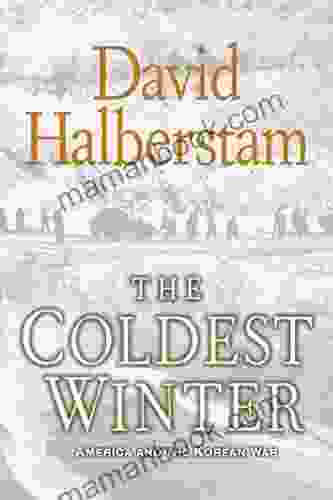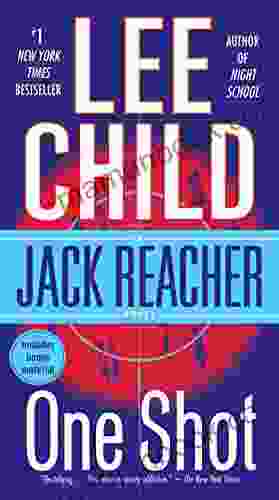The Coldest Winter America Faced and the Devastating Impact on the Korean War

Prologue: A Bone-Chilling Descent
In the annals of American history, the winter of 1950-1951 stands apart as one of the most unrelenting and unforgiving. As a deep freeze gripped the nation, temperatures plummeted to record lows, shattering daily records and leaving countless communities in a state of icy paralysis. The cold cut through bones, froze rivers solid, and cast an eerie stillness over the land.
Unprecedented Cold: A National Emergency
The ferocity of the winter took the nation by surprise. In New England, the mercury dipped to a bone-chilling -35°F in January 1951, shattering the previous record by a staggering 10 degrees. In the Midwest, snowdrifts reached heights of 15 feet, blocking roads and disrupting travel. The relentless cold extended as far south as Texas, where a rare ice storm coated cities in a thick layer of frozen rain.
4.6 out of 5
| Language | : | English |
| File size | : | 9619 KB |
| Text-to-Speech | : | Enabled |
| Screen Reader | : | Supported |
| Enhanced typesetting | : | Enabled |
| Word Wise | : | Enabled |
| Print length | : | 744 pages |
The extreme cold created a national emergency. Schools and businesses were forced to close, and transportation systems were crippled. The elderly and the sick were at particular risk, as hypothermia and frostbite became common occurrences. Even those who ventured outside faced the biting cold with hands and faces concealed behind layers of hats, scarves, and gloves.
The Korean War: A Frozen Battlefield
The frigid winter had a profound impact on the ongoing Korean War. The conflict had erupted just a few months earlier, in June 1950, pitting the United Nations-backed forces against the communist North Korean regime. As the winter set in, the fighting took on a new dimension of brutality.
The extreme cold tested the limits of human endurance. Soldiers on both sides struggled to keep warm in their inadequate winter gear. Trenches filled with snow and ice, turning into icy traps that claimed countless lives. Frostbite and hypothermia were rampant, with soldiers battling the cold as fiercely as they did the enemy.
The frozen landscape also hindered military operations. Vehicles became immobilized in the snow and ice, slowing troop movements and disrupting supply lines. Aerial reconnaissance was hampered by the thick cloud cover and low visibility. The cold exacted a heavy toll on morale, as soldiers fought to maintain their spirits amidst the unforgiving conditions.
The Forgotten Tragedy: Civilian Casualties
While the soldiers on the front lines faced the brunt of the winter's fury, the civilian population back home also suffered greatly. The lack of heat and proper shelter led to widespread illness and death. In the United States, an estimated 150,000 people perished due to the cold, making the winter of 1950-1951 one of the deadliest in American history.
In Korea, the civilian population was particularly vulnerable. The war had already displaced millions of people, leaving them homeless and without adequate food or medical care. The extreme cold exacerbated their suffering, leading to starvation, disease, and death.
Winter's Relentless Grip
As the winter wore on, the cold showed no signs of abating. The nation remained in the icy embrace of the brutal cold, with no end in sight. People grew weary and desperate, as the relentless winter seemed to stretch on indefinitely.
The cold's grip on the land extended beyond the physical realm. It seeped into the hearts and minds of the people, creating a sense of isolation and hopelessness. The winter became a symbol of the trials and tribulations that the nation faced, both on the Korean battlefield and at home.
A Glimmer of Hope: A Break in the Weather
Finally, in March 1951, the relentless cold began to break. Temperatures gradually rose, and the snow and ice started to melt. A sense of relief washed over the nation as the long winter finally began to relinquish its grip.
The thaw brought renewed energy and hope. The nation emerged from the winter stronger and more resilient than before. The experience of the coldest winter in American history had forged an unyielding spirit that would serve the country well in the challenges that lay ahead.
Legacy: A Winter Etched in Memory
The winter of 1950-1951 remains a pivotal event in American history. Its extreme cold and devastating impact left an enduring mark on the nation's psyche. The sacrifices made by the soldiers on the Korean battlefield and the suffering endured by civilians at home serve as a reminder of the resilience and determination of the American people.
Today, the winter of 1950-1951 is remembered as a time of great hardship but also as a testament to the indomitable spirit that has carried the nation through its darkest hours. It is a story of survival, sacrifice, and the enduring power of hope.
4.6 out of 5
| Language | : | English |
| File size | : | 9619 KB |
| Text-to-Speech | : | Enabled |
| Screen Reader | : | Supported |
| Enhanced typesetting | : | Enabled |
| Word Wise | : | Enabled |
| Print length | : | 744 pages |
Do you want to contribute by writing guest posts on this blog?
Please contact us and send us a resume of previous articles that you have written.
 Top Book
Top Book Novel
Novel Fiction
Fiction Nonfiction
Nonfiction Literature
Literature Paperback
Paperback Hardcover
Hardcover E-book
E-book Audiobook
Audiobook Bestseller
Bestseller Classic
Classic Mystery
Mystery Thriller
Thriller Romance
Romance Fantasy
Fantasy Science Fiction
Science Fiction Biography
Biography Memoir
Memoir Autobiography
Autobiography Poetry
Poetry Drama
Drama Historical Fiction
Historical Fiction Self-help
Self-help Young Adult
Young Adult Childrens Books
Childrens Books Graphic Novel
Graphic Novel Anthology
Anthology Series
Series Encyclopedia
Encyclopedia Reference
Reference Guidebook
Guidebook Textbook
Textbook Workbook
Workbook Journal
Journal Diary
Diary Manuscript
Manuscript Folio
Folio Pulp Fiction
Pulp Fiction Short Stories
Short Stories Fairy Tales
Fairy Tales Fables
Fables Mythology
Mythology Philosophy
Philosophy Religion
Religion Spirituality
Spirituality Essays
Essays Critique
Critique Commentary
Commentary Glossary
Glossary Bibliography
Bibliography Index
Index Table of Contents
Table of Contents Preface
Preface Introduction
Introduction Foreword
Foreword Afterword
Afterword Appendices
Appendices Annotations
Annotations Footnotes
Footnotes Epilogue
Epilogue Prologue
Prologue Judith Carter
Judith Carter Trevor Clinger
Trevor Clinger Heidi Kessler
Heidi Kessler Kelly Jensen
Kelly Jensen Jessie Hewitson
Jessie Hewitson David Halberstam
David Halberstam Tony Dunbar
Tony Dunbar Ed Rosenthal
Ed Rosenthal Print Replica Kindle Edition
Print Replica Kindle Edition Sam Brower
Sam Brower Lyn Hejinian
Lyn Hejinian Cat Johnson
Cat Johnson Virgil Royer
Virgil Royer Jared Wynn
Jared Wynn Helen Baumann
Helen Baumann Stanley Meisler
Stanley Meisler Dewey Lambdin
Dewey Lambdin Angela Carr
Angela Carr Bruce Zortman
Bruce Zortman Rick Perlstein
Rick Perlstein
Light bulbAdvertise smarter! Our strategic ad space ensures maximum exposure. Reserve your spot today!
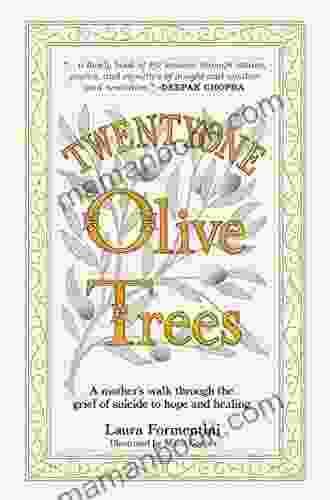
 Jorge Luis BorgesA Mother's Heartbreaking Journey Through Grief, Suicide, and the Path to Hope...
Jorge Luis BorgesA Mother's Heartbreaking Journey Through Grief, Suicide, and the Path to Hope... Alex FosterFollow ·8k
Alex FosterFollow ·8k Dion ReedFollow ·8.6k
Dion ReedFollow ·8.6k Jeffery BellFollow ·9.8k
Jeffery BellFollow ·9.8k Raymond ChandlerFollow ·15.5k
Raymond ChandlerFollow ·15.5k Forrest BlairFollow ·4.6k
Forrest BlairFollow ·4.6k Gary ReedFollow ·16.9k
Gary ReedFollow ·16.9k Derek CookFollow ·2.2k
Derek CookFollow ·2.2k Cormac McCarthyFollow ·18.3k
Cormac McCarthyFollow ·18.3k

 Ernest Powell
Ernest PowellBenefits of Corporal Punishment: A Review of the...
Corporal punishment is a form of physical...
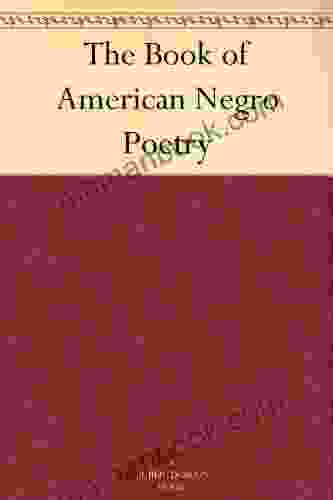
 Bobby Howard
Bobby HowardThe Development and Significance of African American...
African American...
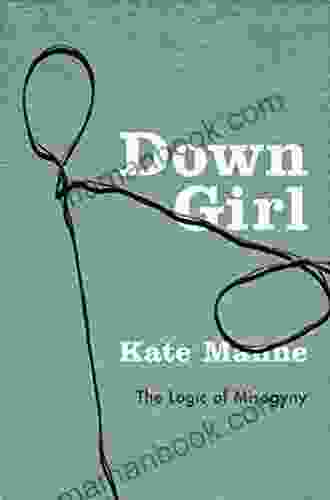
 Guy Powell
Guy PowellDown Girl: The Logic of Misogyny - A Comprehensive...
In her groundbreaking work,...

 Forrest Blair
Forrest BlairThe Bikini Changing Room: A Micro Mini Romance
In the heart of...
4.6 out of 5
| Language | : | English |
| File size | : | 9619 KB |
| Text-to-Speech | : | Enabled |
| Screen Reader | : | Supported |
| Enhanced typesetting | : | Enabled |
| Word Wise | : | Enabled |
| Print length | : | 744 pages |


